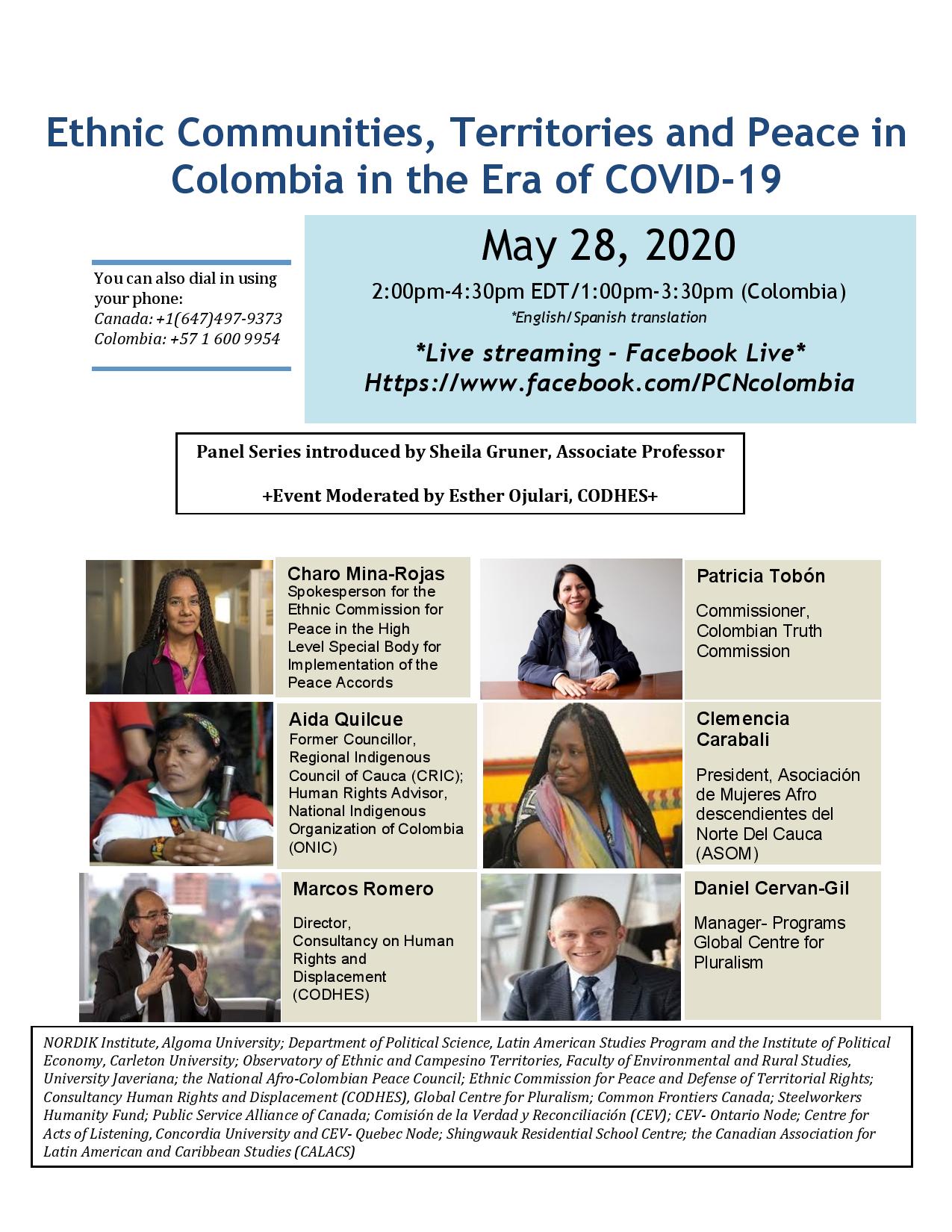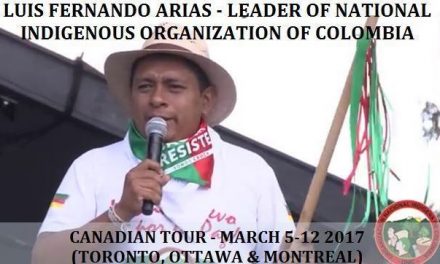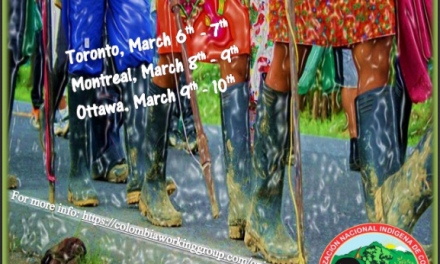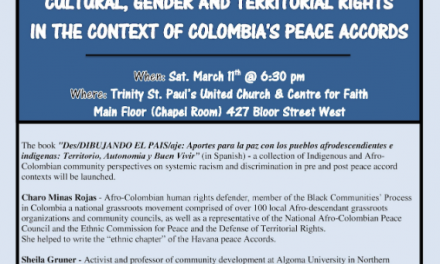Indigenous and Afro-descendant people in Colombia have been made especially vulnerable during the global pandemic. Despite special protections contained in the “Ethnic Chapter” of the internationally lauded 2016 Colombian peace process, the lack of effective implementation of this chapter has made ethnic people more vulnerable to the potential effects of the virus as well as to acts of violence – in ways often off the radar by Canada and the global community. In the midst of the health crisis, ethnic peoples are at even more risk, as criminal networks continue to target social leaders and longstanding structural racism has left communities without adequate access to many of the necessary basic services. Violence has been waged against rural, Indigenous and Black communities, including in Northern Cauca, in Choco, the South Pacific and in other regions. National Indigenous and Black organizations continue to mobilize for peace and the recognition of ethno-territorial rights in the midst of this critical situation.
What is happening in ethnic regions of Colombia? Why should Canada be paying attention? How should the global community be responding and ensuring the commitments in the Ethnic Chapter are fulfilled as a response to Covid-19?
Join our panel of Indigenous and Afro-descendant leaders from affected regions, national and international human rights experts and others to examine current realities facing ethnic peoples in Colombia and to discuss routes forward.
Charo Mina-Rojas (Spokesperson from the Ethnic Commission for Peace within the High Level Special Body for Ethnic Peoples for the Implementation of the Peace Accords);
Patricia Tobón (Commissioner for the Colombian Commission for the Clarification of Truth, Co-existence and Non-Repetition);
Aida Quilcue (Former Councillor of the Regional Indigenous Council of Cauca, CRIC); Human Rights Advisor, National Indigenous Organization of Colombia (ONIC);
Clemencia Carabali (President of the Asociación de Mujeres Afro-descendant Women del Norte Del Cauca, ASOM);
Marco Romero (Director of the Consultancy on Human Rights and Displacement, CODHES);
Daniel Cervan-Gil (Manager- Programs, Global Centre for Pluralism)





